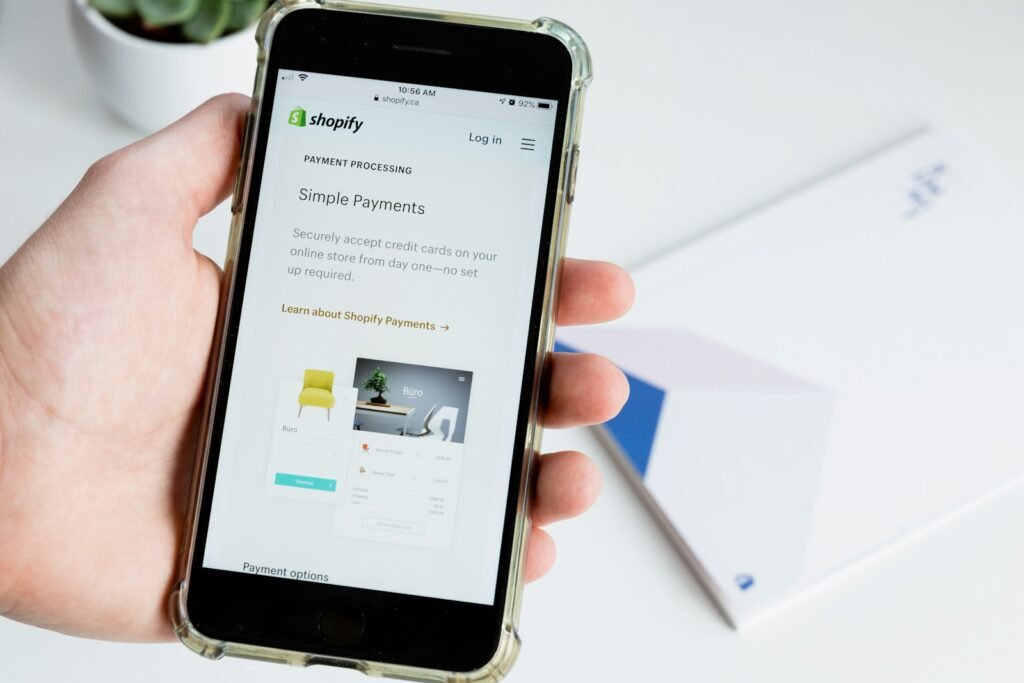
Why Financial Inclusion Matters
Financial inclusion – a term that may leave you scratching your head in confusion, but let me unravel its mystery for you. It’s the concept of ensuring that everyone, no matter where they are, has the ability to utilize financial services. Picture a world where even those tucked away in remote corners can seamlessly conduct transactions, borrow money, and stash away savings for a rainy day. As someone well-versed in the realm of online commerce, allow me to illustrate why this notion holds more significance than snagging the latest tech gadget.
In the profound words of Muhammad Yunus, “Poverty is not birthed by impoverished individuals; it is nurtured by the structures we have erected and systems we adhere to.” Financial inclusion acts as a catalyst for unlocking one’s potential and liberating them from the grips of destitution. By granting access to banking facilities or digital payment platforms, individuals gain the means to kickstart ventures, invest in their education, and fortify their future prospects. It transcends mere monetary transactions; it bestows upon people autonomy over their fate. So as you peruse offerings on your beloved e-commerce platform next time around, bear in mind that financial inclusion isn’t just another catchphrase – it stands as a transformative force towards fostering an all-embracing and thriving society.
The Evolution of Online Payment Systems
Ah, the labyrinthine evolution of online payment systems – a journey peppered with unexpected twists and bursts of innovation, not to mention the occasional enigmatic pop-up message urging you to input your credit card details once more. It’s akin to attempting to decipher a Rubik’s Cube blindfolded, only this time your challenge involves maneuvering through a virtual shopping cart.
From the bygone era of dial-up internet connections and the iconic cacophony of AOL linking us to the vast expanse of cyberspace, to today’s seamless one-click payment solutions that have become second nature – oh how far we’ve come. As Steve Jobs succinctly put it, “Innovation distinguishes between a leader and a follower,” and indeed we have witnessed remarkable strides in the realm of digital payments. Who could forget when PayPal emerged as our knight in shining armor amidst cumbersome paper checks and money orders? It was like having an unswerving ally tucked away in our cyber pocket.
Fast forward to present day where an abundance of online payment alternatives clamor for attention, each vying for supremacy during our checkout process. Picture it as a spirited digital showdown; with Apple Pay, Google Pay, and every fintech startup showcasing their virtual prowess in hopes of winning over consumers. For those well-versed in e-commerce intricacies such as myself, navigating these turbulent waters proves both electrifying yet daunting. However one thing is certain – embracing online payments isn’t merely advantageous anymore; it has transformed into an imperative within today’s digital landscape. So gear up my fellow web store developers because embarking on this unpredictable odyssey through online payment systems promises thrills aplenty!
Challenges in Achieving Financial Inclusion
Navigating the realm of financial inclusion in today’s digital era is akin to chasing after a greased pig at a bustling country fair – an endeavor filled with slipperiness and uncertainty. The predominant hurdle lies in the limited access to banking facilities for numerous individuals, particularly in underdeveloped regions. Indeed, as the age-old adage suggests, “It’s challenging to make a deposit while standing outside the bank,” a sentiment echd by millions worldwide who find themselves excluded from conventional financial frameworks.
Furthermore, even for those fortunate enough to possess banking privileges, intricacies abound. Exorbitant fees and concealed charges can transform routine financial transactions into acts resembling daylight robbery. Little wonder then that many opt to hoard their funds beneath their mattresses rather than contend with the seemingly interminable red tape associated with traditional banks. In the words of esteemed entrepreneur Richard Branson, “Complexity is your adversary. Any simpleton can complicate matters; it takes true skill to simplify.” Henceforth, simplicity stands as paramount in rendering financial services accessible on a universal scale.
The Impact of Online Payment Systems on Small Businesses
The impact of online payment systems on small businesses in today’s digital age is truly remarkable. These enterprises, which have long been the lifeblood of our economy, are now experiencing a revolution in the way they operate. As an online business expert, I have seen firsthand how accepting online payments has transformed the convenience and efficiency of these businesses.
Entrepreneur and investor Peter Thiel once said that “In the modern economy, a small business needs to be part of the online ecosystem.” This means having a web presence, transacting online, and accepting digital payments. The days of cash-only transactions and paper checks are fading away as small businesses embrace credit card payments and popular digital wallets like PayPal or Apple Pay.
This shift has allowed small businesses to expand their customer base, increase sales, and streamline operations. It’s as if a burst of energy has propelled mom-and-pop shops into competition with larger corporations on a more level playing field. Jeff Bezos’ words ring true – we must lean into the future and adapt to changing circumstances in order to thrive in this ever-evolving marketplace.
By embracing online payment systems, small businesses can navigate through this perplexing landscape of commerce with agility and resilience. They no longer need to fear change; instead, they can harness its power for growth and success in the digital realm.
Innovations in Digital Wallets
The evolution of digital wallets has been nothing short of miraculous, transforming the way we handle online payments from clunky coins in a leather pouch to seamless transactions with just a tap on our smartphones. It’s like having a personal assistant at your fingertips, making all your payments effortlessly.
What truly intrigues me is the incorporation of biometric technology into digital wallets for added security. The idea of using your fingerprint or facial recognition to authorize a payment is not only cutting-edge but also provides an extra layer of protection against potential fraudsters. This level of security not only gives customers peace of mind but also instills trust in the use of digital wallets for their financial transactions.
As Steve Jobs famously said, “Innovation distinguishes between a leader and a follower.” Embracing these technological advancements in digital wallets is crucial for any online business looking to stay ahead in the competitive world of ecommerce. By building trust with customers through secure and convenient payment methods, businesses can foster long-term relationships and drive sales in this ever-changing landscape of online payments.
Barriers to Accessing Online Payment Systems
Navigating the realm of online payment systems is akin to being lost in a labyrinth with no sight – a perplexing and bewildering experience. A major stumbling block lies in the lack of trust when it comes to virtual transactions. In the words of Mark Twain, “Trust yourself, you know more than you think you do.” Yet, many individuals are reluctant to entrust their earnings to unfamiliar digital platforms. It’s as challenging as persuading a squirrel to relinquish its stash of nuts – an arduous endeavor indeed!
Moreover, the intricacy of online payment procedures can be utterly overwhelming for some users. It feels like attempting to decipher ancient hieroglyphs without the aid of a Rosetta Stone. Echoing Steve Jobs’ renowned words, “Simplicity is the ultimate sophistication,” it appears that certain online payment systems have overlooked this principle. From numerous security checks to convoluted payment gateways, it seems like unraveling a cryptic code just to complete a basic transaction. Little wonder why some individuals opt for good old-fashioned cash instead.
The Role of Mobile Banking in Financial Inclusion
Ah, the enigmatic world of mobile banking, a hidden gem in the realm of financial inclusion! Imagine this: you’re meandering down the digital boulevard, clutching your phone tightly, when suddenly, with just a few taps, a plethora of financial services are at your fingertips. It’s as if you have a personal banker nestled snugly in your pocket, poised to aid you at any given moment. Mobile banking transcends mere convenience; it’s a revolutionary tool for those who lack access to traditional banking services. As Jack Dorsey once mused, “We view mobile as the vanguard of tomorrow and are deeply entrenched in its embrace.”
In the sphere of e-commerce, mobile banking isn’t merely an optional add-on; it’s an indispensable lifeline. Envision a small business proprietor in a secluded hamlet seamlessly accepting payments through their handheld device, broadening their clientele beyond physical borders. It’s akin to casting a spell and proclaiming, “Presto chango – financial inclusivity for all!” Thus, whether you’re an adept tech entrepreneur or an intrepid digital wanderer, adopting mobile banking is not only about remaining pertinent but also about forging pathways towards a more united and inclusive globe. Echoing Steve Jobs’ immortal words: “Innovation delineates between pioneers and conformists.” Henceforth my companions leap onto the bandwagon of mobile banking because destiny beckons – it resonates within your smartphone’s ringtone.
Security Concerns with Online Payment Systems
In the chaotic realm of online transactions, security concerns flutter around like persistent butterflies disrupting a peaceful picnic. The threat of cybercriminals looms ominously in the digital shadows, compelling online businesses to maintain constant vigilance and fortify their defenses. As Kevin Mitnick, the renowned hacker turned security consultant once remarked, “The question is not if you will be hacked, but when.”
Within the realm of online payment systems, one’s greatest fear lies in the possibility of confidential information falling into malevolent hands. It feels akin to releasing your credit card details into the vast expanse of cyberspace with fingers crossed they don’t fall into nefarious clutches. As an age-old adage wisely states, “It takes years to build a reputation and mere moments for a cyber-incident to shatter it.” Hence, it is imperative for businesses to invest in robust security measures that safeguard both their clientele and their esteemed reputation.


